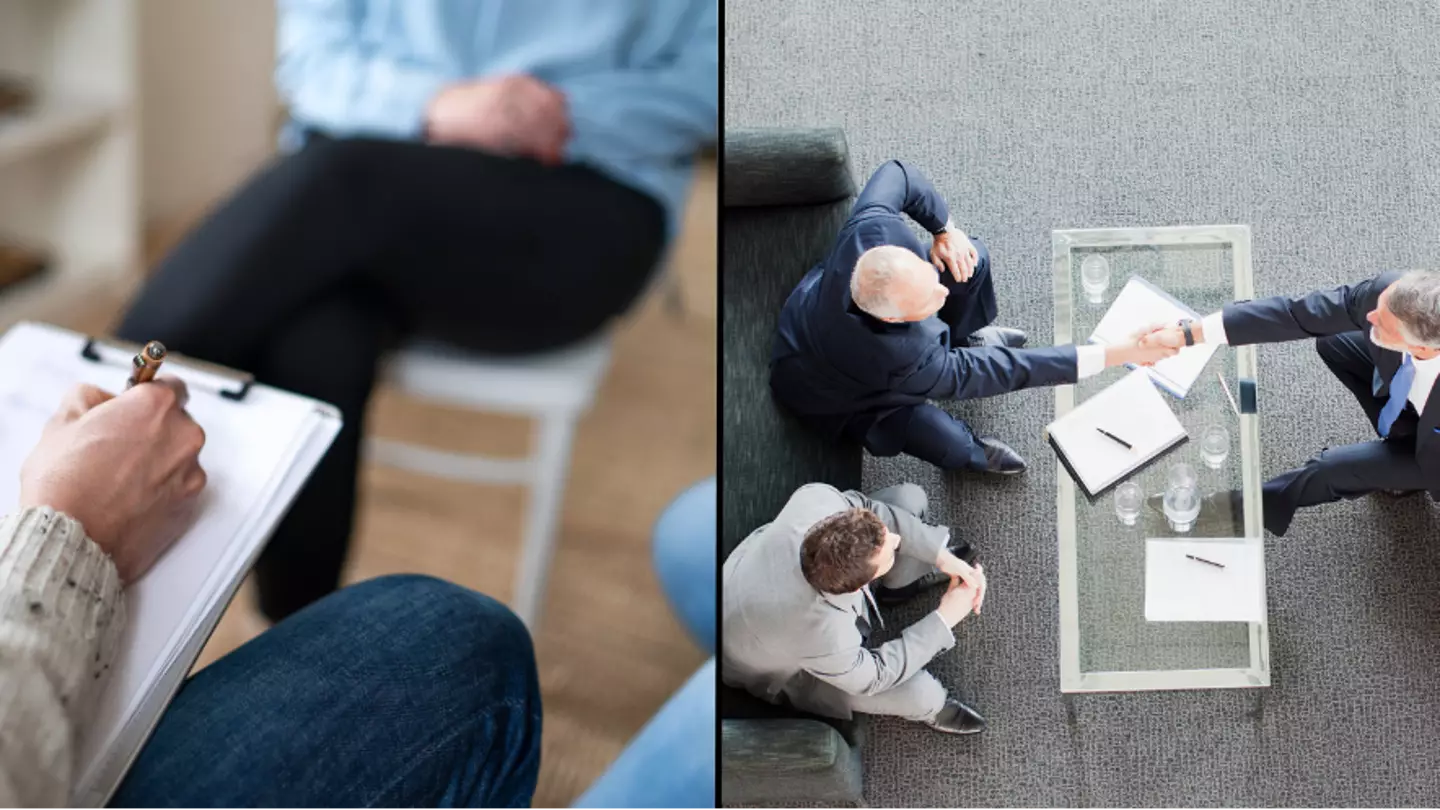
There are plenty of - let's say 'interesting' - interview techniques out there these days.
It could be interviewing candidates over breakfast, or planting the hiring manager on the reception desk to see how candidates interact with them.
Former Apple CEO Steve Jobs would reportedly take candidates out for a beer to see how they interacted. Presumably he didn't interview multiple candidates in one day.
But it seems that some interviewers will add in extra elements just to see how the candidate will react, almost like an unexpected stress test.
Advert

This particular interviewing technique sounds like something you would expect to encounter in a dystopian TV drama, where psychological stresses are used to test applicants to the furthest degree.
It involves purposefully seating the candidate on a chair with a wobbly leg.
Yes, that was also my first thought.
The idea behind this unorthodox strategy is to make the candidate ill at ease during the interview, and ultimately to see if they are 'bold' enough to ask for a replacement chair.
Advert
One man told The Mirror US: "My brother was in ROTC in college, and he told me this story. An applicant for ROTC Nuclear Power school would sit the chair in front of the desk of the interviewing officer during the interview.

"There was a second/similar chair in the room available for the applicant - off to the side. The chair in front of the desk for the applicant had one leg of chair - cut shorter - so the person sitting in the chair would wobble - during the interview.
"The successful test was to see if the applicant would be bold enough to stop the interview for a moment - to request to exchange his chair, for second/other chair - so they did not wobble."
It's certainly an interesting technique!
Advert
Another test which appears in the same spirit as the chair test is the coffee cup test.
In this one candidates are offered a cup of tea or coffee. If they accept, then the test is to see if the applicant takes their cup back to the kitchen to wash themselves, or if they leave it for someone else.
Trent Innes, current chief growth officer of hotel commerce platform SiteMinder, explained: "You can develop skills, you can gain knowledge and experience but it really does come down to attitude, and the attitude that we talk a lot about is the concept of 'wash your coffee cup'."
That said, it's probably worth making sure you have the skills and experience. You're welcome to try applying to become a consultant neurosurgeon at the hospital on the back of the coffee cup test, but it might be an idea to go to medical school first.
